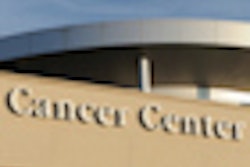Dear Oral Cancer & Diagnostics Insider,
Michael Douglas' battle with oropharyngeal cancer and the escalating incidence of HPV-related oral cancers have put the critical need for earlier diagnosis and treatment in the spotlight, and the research community is responding.
This led us to interview oral cancer researcher Sol Silverman, DDS, a professor of oral medicine at the University of California, San Francisco (UCSF) and head of UCSF's oral medicine clinic, for the first installment of our new series, Leaders in Dentistry. Dr. Silverman is a vocal proponent of cancer prevention, education, and early intervention and is involved in a number of related research projects at UCSF.
In this latest Insider Exclusive, Dr. Silverman shares his thoughts on the role dental practitioners can play in diagnosing and preventing oral and head and neck cancers, and what he thinks will be the next big breakthrough in oral cancer diagnostics.
In other news, head and neck surgeons from the Mayo Clinic found that transoral robotic surgery for patients with cancer of the larynx allows some to resume normal eating and speaking while avoiding further treatment with chemotherapy or radiation therapy. Click here to read more.
And while acute inflammation is a part of the body's natural defense response, a study presented at the recent International Association for Dental Research meeting found that it also promotes malignant behavior of HPV-immortalized oral keratinocytes, suggesting that it may be an important cofactor for HPV-associated oral carcinogenesis. Read more.
A pair of related studies about alcohol's connection to oral cancer came to interesting conclusions. European researchers who tracked more than 360,000 people in eight countries found a correlation between overall cancer risk and the amount of alcohol consumed on a daily basis. But another study determined that postmenopausal women are not more vulnerable than men to alcohol-induced carcinogenesis in the oral cavity. Read about the women's study here and the seemingly contradictory report here.
And intriguing new research may point the way to novel therapies and early detection strategies for oral cancer. Researchers at the University of Pennsylvania School of Medicine found that a protein that helps cells stick together is frequently absent or out of place in squamous cell cancers of the oral cavity and esophagus. Click here to read their findings.
And an electronic "nose" developed by a team of Israeli researchers could aid in identifying head and neck cancers. Read about the new device's potential for the early diagnosis of oral cancer here.
Finally, while several next-generation optical techniques have shown promise as noninvasive tools for early detection of oral and head and neck cancers, a group of Taiwan researchers contend that harmonic generation microscopy offers unique diagnostic advantages in the oral cavity. Click here to read more.



















